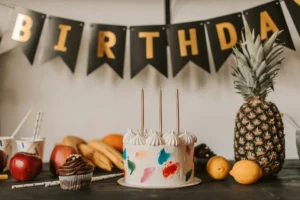Hi, I’m Ryder. I recently turned 18, a milestone that should have been filled with celebration and joy. Instead, it was marked by my father’s absence, leaving me feeling deeply disappointed. What happened next, however, helped me gain a new perspective.
Let me backtrack a bit. When I was seven, my parents began arguing. By eight, they were separated, and Dad had moved out. I remember my mom’s words clearly when she explained, “Ryder, sweetie, your father won’t be living with us anymore. But you can still see him whenever you want, okay?”
Confused and heartbroken, I asked, “But why, Mom? Did I do something wrong?” She assured me it wasn’t my fault, but the reality of their separation was hard to accept. “Sometimes grown-ups just can’t live together anymore,” she said. “Your dad and I will both always love you, and that won’t ever change. We just won’t be living in the same house anymore.”
Mom worked hard as an elementary school teacher to provide for me, and I’ll always appreciate her efforts. My dad, on the other hand, seemed to become more of a distant figure in my life. He was always busy with work, friends, or his fishing trips. Despite the separation, I longed for his attention and approval, but it felt like a constant struggle to win it.

A birthday cake on a table | Source: Pexels
As my 18th birthday approached, I hoped Dad might make an exception this time and attend the celebration. I organized a small party with Mom and a few friends, and I even texted Dad about it. His reply was hopeful: “Sounds great! I’ll try to be there.”
The day arrived, and Mom made it special—decorating the house, baking my favorite cake, and surprising me with a new guitar I’d been wanting. Friends came over, and the house was filled with laughter and joy. Yet, as hours passed, there was no sign of Dad.
I called him, and he answered with the sound of waves and chatter in the background. “Dad, it’s my birthday,” I said, trying to keep my voice steady.
“Oh, right. Happy birthday!” he replied casually. “I’m out on the lake with the guys. I’ll catch you later, okay?”
I hung up feeling crushed. I retreated to my room, tears streaming down my face, until Mom found me and comforted me. She understood, but it didn’t make the pain go away.
A week later, Dad called again, acting as if nothing had happened. “Hey, I got you a gift,” he said. “Want to come over and get it?”
Despite my frustration, I went to his house. When I unwrapped the gift, it was a fishing rod. It wasn’t just a poorly chosen gift; it was a symbol of his absence, a reminder of the hobby that had kept him away.
“Thanks, Dad,” I said, forcing a smile. “It’s… great.”
He didn’t notice my lack of enthusiasm and suggested we go fishing the next weekend. “I can’t come next weekend, Dad,” I said. “I’ve got plans with Mom.”
He was disappointed but shrugged it off. “No worries, we’ll find another time.”
I knew we wouldn’t, and for the first time, I was okay with that. Holding the rod, I realized I needed to let go of the fantasy that Dad would be the father I wanted him to be.
Over the following months, I focused on those who truly cared about me—Mom, my friends, and myself. I threw myself into playing guitar and helping Mom around the house, grateful for her constant support.
One evening, while we were doing dishes, Mom asked, “Have you heard from your father lately?”
“Nah,” I replied, “but it’s okay. I’m done waiting for him to show up.”
She looked at me with a mix of sadness and understanding. “I’m sorry it turned out this way, Ryder. I always hoped…”
“I know, Mom,” I said, hugging her. “But I’ve got you, and that’s more than enough.”
Time has shown me that my worth isn’t dependent on my father’s attention. I’ve learned to find strength in the love and support around me and accept that sometimes people won’t meet our expectations. The fishing rod remains in my closet, a reminder not of what I lost, but of what I gained—self-respect, resilience, and the ability to let go of what I can’t change.
If you were in my place, what would you have done?





